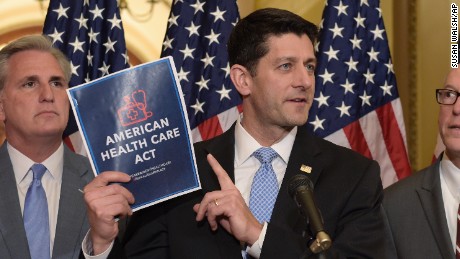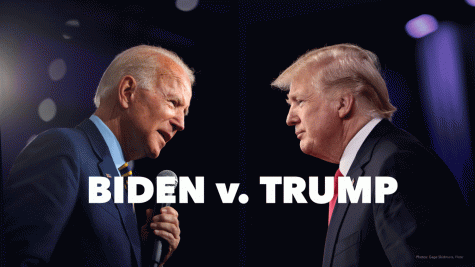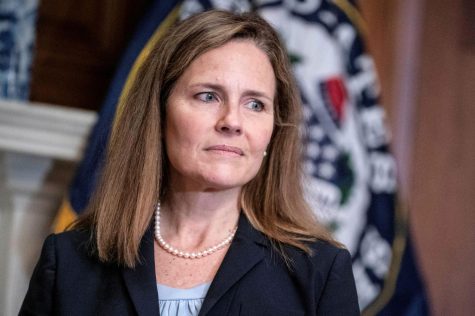Controversial new healthcare bill faces challenges in Congress

The Republican majorities in both houses of the 115th Congress were recently drafting a replacement of the Patient Protection and Affordable Care Act (PPACA), the American Health Care Act (AHCA). The House scheduled an official vote on the passage of the AHCA on Thursday, March 23, 2017.
The PPACA was implemented in March of 2010 by the Obama Administration.
The Obama Administration intended to implement regulations on the healthcare industry that would ensure the financial and medical security of consumers. The PPACA was a series of laws, within a single legislative title, to accomplish said goals.
Prominent features of the PPACA include non-discriminative coverage of pre-existing conditions, the allowance of children to remain on their parents’ insurance plan until the age of 26, the removal of annual or lifetime caps or limits, income-based tax credits, free preventative care services (like mammograms and vaccinations), the state-based eligibility expansion of Medicaid.
The PPACA received strong criticism from conservative and Republican political figures. Many believed that the PPACA allowed the federal government to have unwarranted power over the healthcare industry. Also, individualism and personal responsibility as tenets of conservative philosophy have been a fundamental part of arguments against the PPACA.
During the Election of 2016, then-Republican nominee Donald Trump has referred to the PPACA as “terrible legislation” and has promised to draft and facilitate a repeal and replacement of the law.
In the media, Speaker of the House, Paul Ryan (R-WI) is being recognized as the key architect of the new law, although, the Trump Administration is stated to have participated in the drafting of the AHCA.
It is rumored that the AHCA would not pass in the Senate. The Republican majority, and therefore authority, in the Senate is comparably smaller than in the House. Opposition from as little as three Republican senators would result in the rejection of the law.
The AHCA has received criticism from both conservative and liberal political figures alike.
According to the Congressional Budget Office (CBO) an estimated 14 million consumers may lose their health insurance within the next year, if the AHCA is passed. Other estimations include a loss of health insurance for 26 million consumers by the year 2026.
Conservatives believe that the law does not well-distinguish itself from the PPACA. The AHCA has maintained many of the popular aspects of the PPACA that conservatives view as an overreach of federal authority.
Liberals believe that the law is regressive by nature. The AHCA dismantles many of the mandates and requirements that were essential to the function and success of the PPACA. Also, the law removes medical benefits and financial protections for consumers. The law would also defund Planned Parenthood. Planned Parenthood is a network of healthcare service providers and clinics that is used primarily by women.
The AHCA dismantles the individual mandate of the PPACA, which requires the majority of people to acquire health insurance or otherwise pay a penalty.
Conservative opponents of the law believe that the individual mandate violates the conservative belief in “personal freedom,” where individuals should not be required to pay for any expense for which they do not wish.
However, policymakers and legislators have stated that the individual mandate is essential to creating a stable healthcare market, where both low-paying healthy and high-paying sick consumers balance the costs of health care services in a type of equilibrium.
Due to the controversial nature of the bill, the AHCA may not have enough Congressional support to pass both the lower and upper houses. The bill seems to be unpopular among both Democratic and Republican constituents. A floor vote in the House was scheduled for Thursday, March 23. However, it remains unsure whether the bill will pass the Senate and will move onto the White House.
Update:
The Republican leadership of the House, namely Speaker Ryan, has withdrawn the AHCA from consideration, which therefore cancels any future vote on this version of the bill.
This decision comes after the first postponement of the vote on the AHCA in the House that was originally scheduled on March 23, 2016. It was projected that the AHCA did not have enough Republican support to pass by a simple majority.
Members of the Freedom Cascus, a congressional group of conservative legislators, viewed the latest updated version of the law as not well differentiated from the ACA which it seeks to replace, and therefore, opposed it.
Moderate Republicans worried about the potential political consequences of voting for a bill that is unpopular among their constituents and significantly reduces the affordability, accessibility, and quality of healthcare, and therefore, opposed it, as well.
The Trump Administration is stated to have been involved in the decision to withdraw the AHCA.
The ACA will remain one of the only few legislations which regulate many different aspects of the U.S healthcare system.
As stated by his Administration, President Trump’s next priority is tax reform.

I am in 12th grade. I would like to study political science at the post-secondary level. I chose to study journalism because the critical thinking and...












